Big Brains
Big Brains explores the groundbreaking research and discoveries that are changing our world. In each episode, we talk to leading experts and unpack their work in straightforward terms. Interesting conversations that cover a gamut of topics from how music affects our brains to what happens after we die.
What Makes Music Go Viral—From AI to Taylor Swift
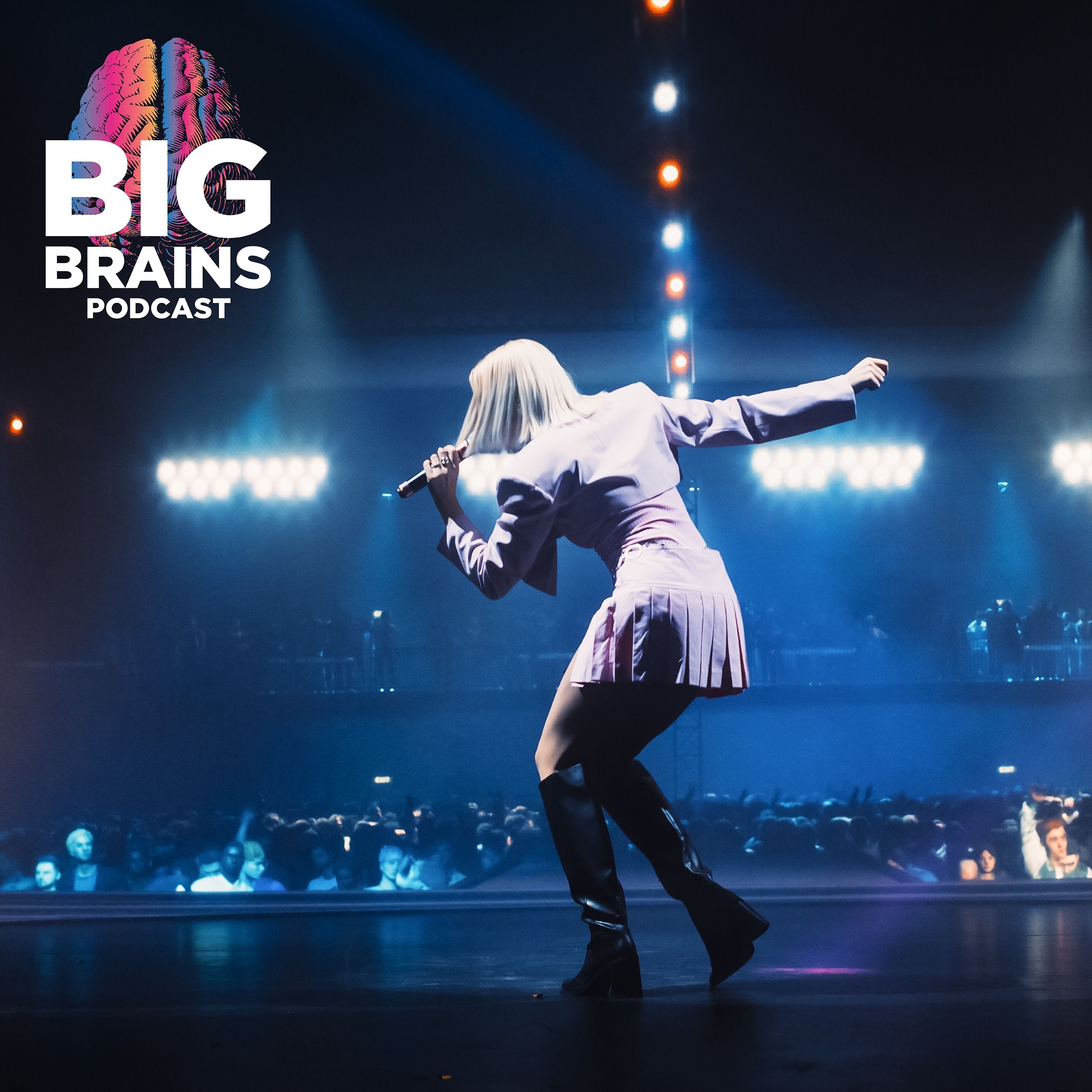
The internet and social media have transformed the way in which we hear and understand music today—and online communities and platforms from YouTube to TikTok have changed how music circulates and ultimately goes viral. Why do some pop stars have more success creating hit songs and building online following than others?
In this episode, we speak with Paula Clare Harper, a musicologist and assistant professor at the University of Chicago. Harper co-edited the book Taylor Swift: The Star, The Songs, The Fans, which explores the online musical cultures that produced and propelled the image of megastar Ta...
How Wearable Tech Will Heighten Our Senses and Abilities, with Pedro Lopes

Can you imagine a world in which a wearable device, like a smartwatch, could move your fingers to strum the guitar or play the drums? That kind of technology is part of the innovative research coming out of the Human-Computer Integration Lab at the University of Chicago, led by renowned computer scientist Pedro Lopes. His lab is developing a new generation of gadgets that use haptics (or tactile sensations like the buzz of your smartphone) to move your body, replicate your sense of smell and even make you feel things.
In this episode, Lopes explores the potential...
Why Are More Women Saying No To Having Kids? With Peggy O'Donnell Heffington
More and more women in the United States are saying no to motherhood. In 2023, the U.S. fertility rate reached the lowest number on record. But the idea of non-motherhood is actually not a new phenomenon, nor did it come out of the modern feminist movement. For centuries, women have made choices about limiting births and whether or not to become mothers at all. This history is documented in a new book, "Without Children: The Long History of Not Being a Mother," by University of Chicago Assistant Instructional Professor Peggy O'Donnell Heffington.
Heffington writes about the historic...
How Full-Body MRIs Could Predict Your Long-Term Health, with Daniel Sodickson
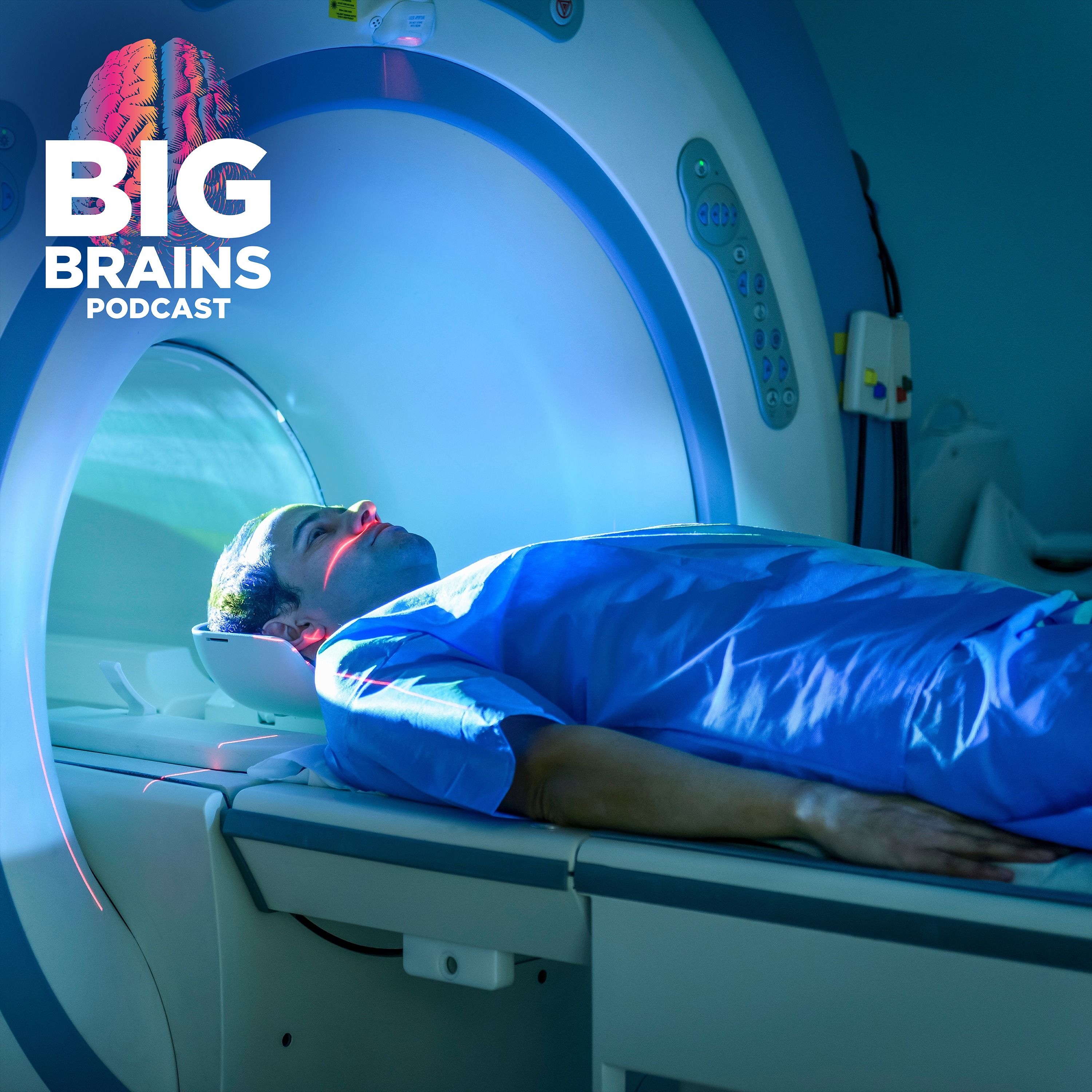
What does it mean to see beneath the surface — of the human body, the brain, or even the universe itself? In his new book, The Future of Seeing: How Imaging Is Changing Our World, Prof. Daniel Sodickson of NYU explores the future of imaging: How technology is transforming not just medicine, but our very ways of perceiving the world. With the rise of AI-driven “digital vision,” Sodickson, a pioneer of MRI innovation, argues that imaging is no longer just a diagnostic tool — it’s becoming a new language of discovery.
In this conversation, Sodickson explores the promises and pitfal...
Is There Such A Thing As A Psychopath?
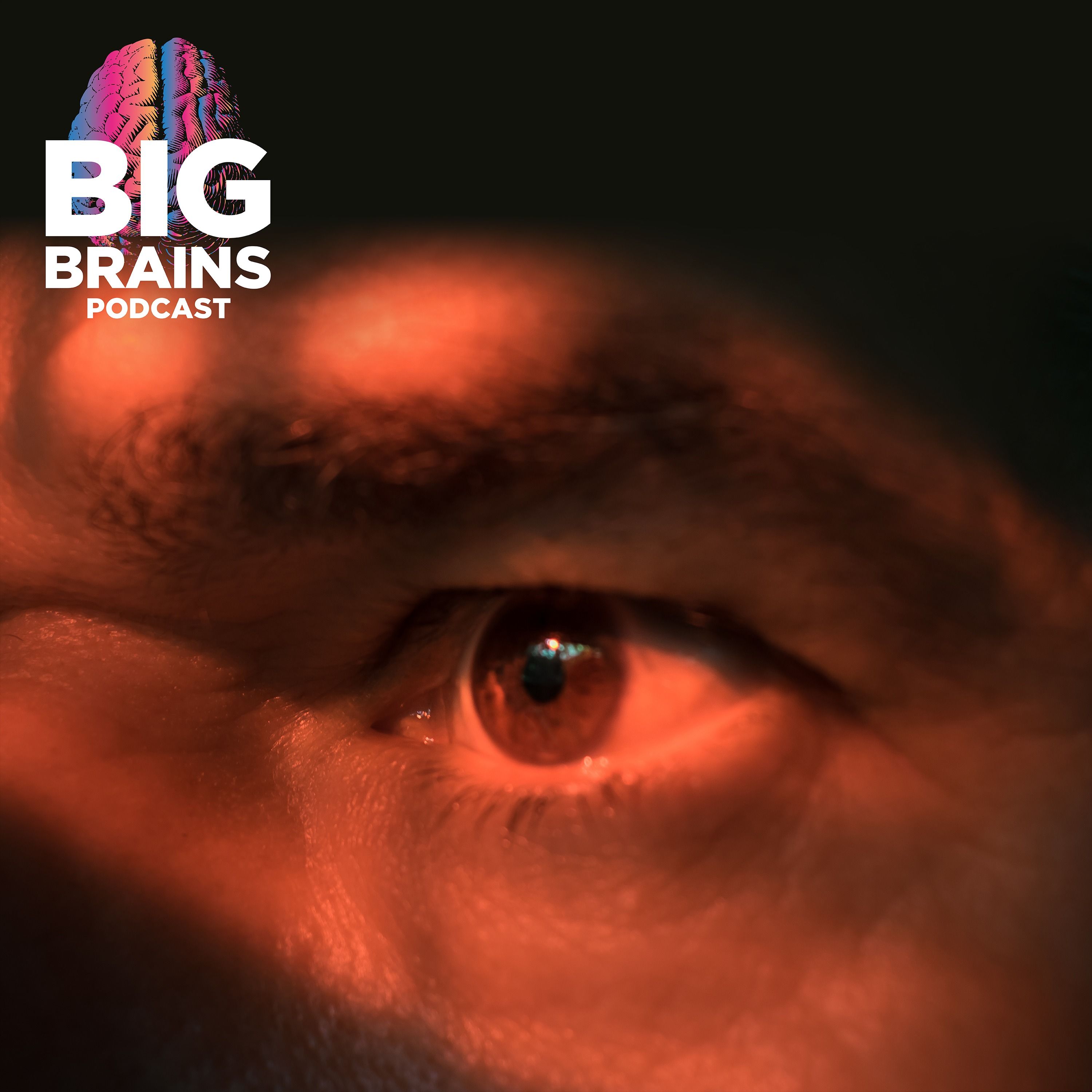
Few ideas have gripped the public imagination quite like the idea of the “psychopath.” From Hollywood thrillers to true-crime podcasts, popular culture has led us to believe that psychopaths are dangerous and biologically distinct from the rest of us. But what if almost everything we think we know about them is wrong?
In this episode, we talk with Rasmus Rosenberg Larsen, an Assistant Professor of Forensic Epistemology at the University of Toronto and author of "Psychopathy Unmasked," whose research is challenging the very foundation of psychopathy as a diagnosis. Larsen explains how the term “psychopath” is relatively new, dat...
Why We Haven’t Solved Brain Disorders—And How To Fix It, with Nicole Rust
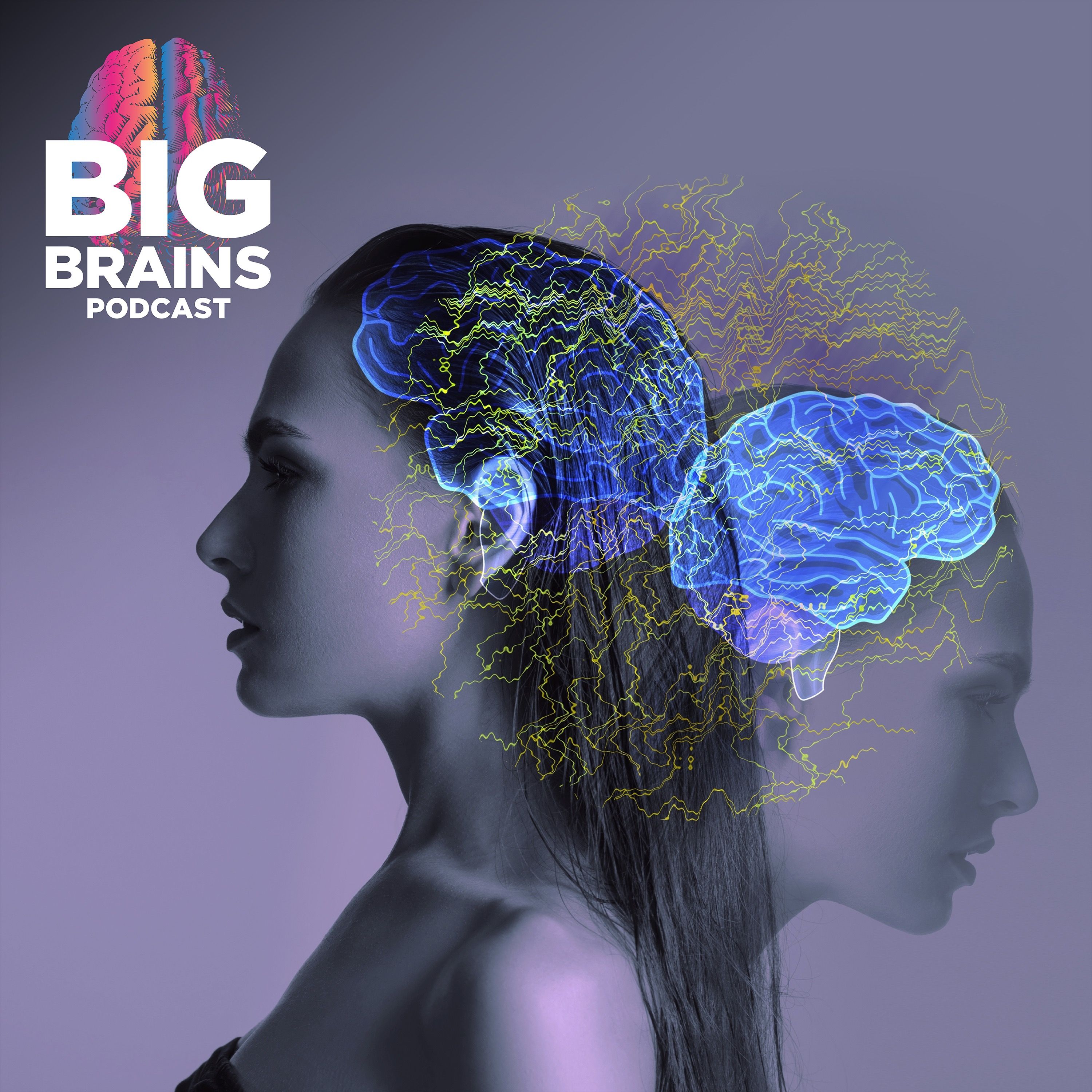
For decades, neuroscience has promised breakthroughs in treating conditions like depression, schizophrenia, and Alzheimer’s. Yet despite powerful technologies and billions invested, progress has been frustratingly slow. Why?
On this episode of Big Brains, we talk with Nicole Rust, neuroscientist at the University of Pennsylvania and author of Elusive Cures. Rust argues that the traditional “domino” view of the brain—where one broken piece can simply be fixed—has held us back. Instead, she says we need to embrace the brain’s true nature: a complex, dynamic system more like the weather than a machine.
We explore w...
Life On Mars: Is It Possible For Humans? with Edwin Kite
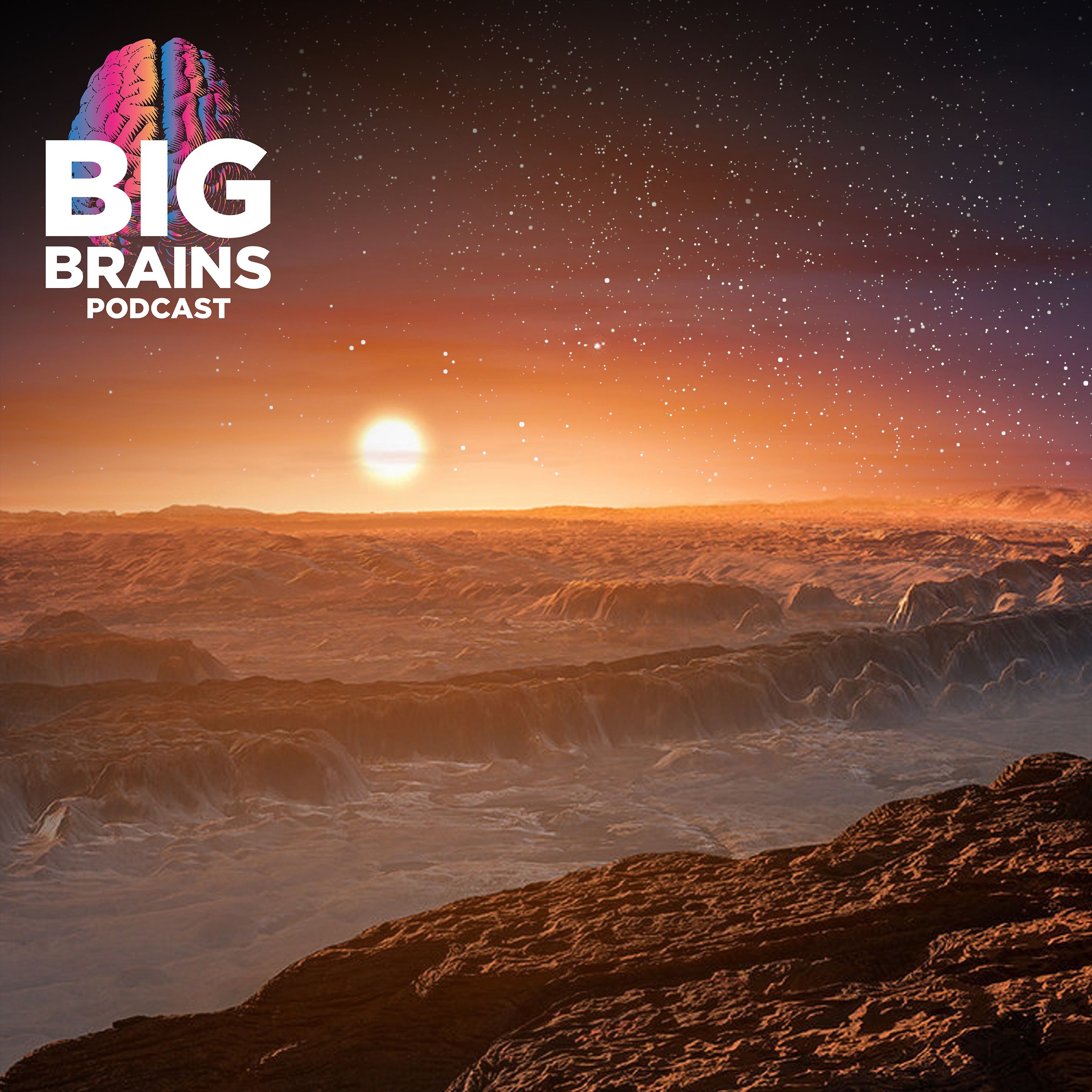
Billions of years ago, Mars may have looked less like the barren red desert we know today and more like Earth—with a blue sky, flowing rivers, and even seas. What happened to turn a once-habitable world into the frozen, lifeless planet we see now?
On this episode of Big Brains, University of Chicago geophysical scientist Edwin Kite takes us on a journey through Mars’ hidden past. From evidence of a lost carbon cycle to theories about ancient climate swings, Kite’s research is rewriting the story of the Red Planet. But it’s not just about the past...
How To Use Nature To Restore Your Focus, with Marc Berman
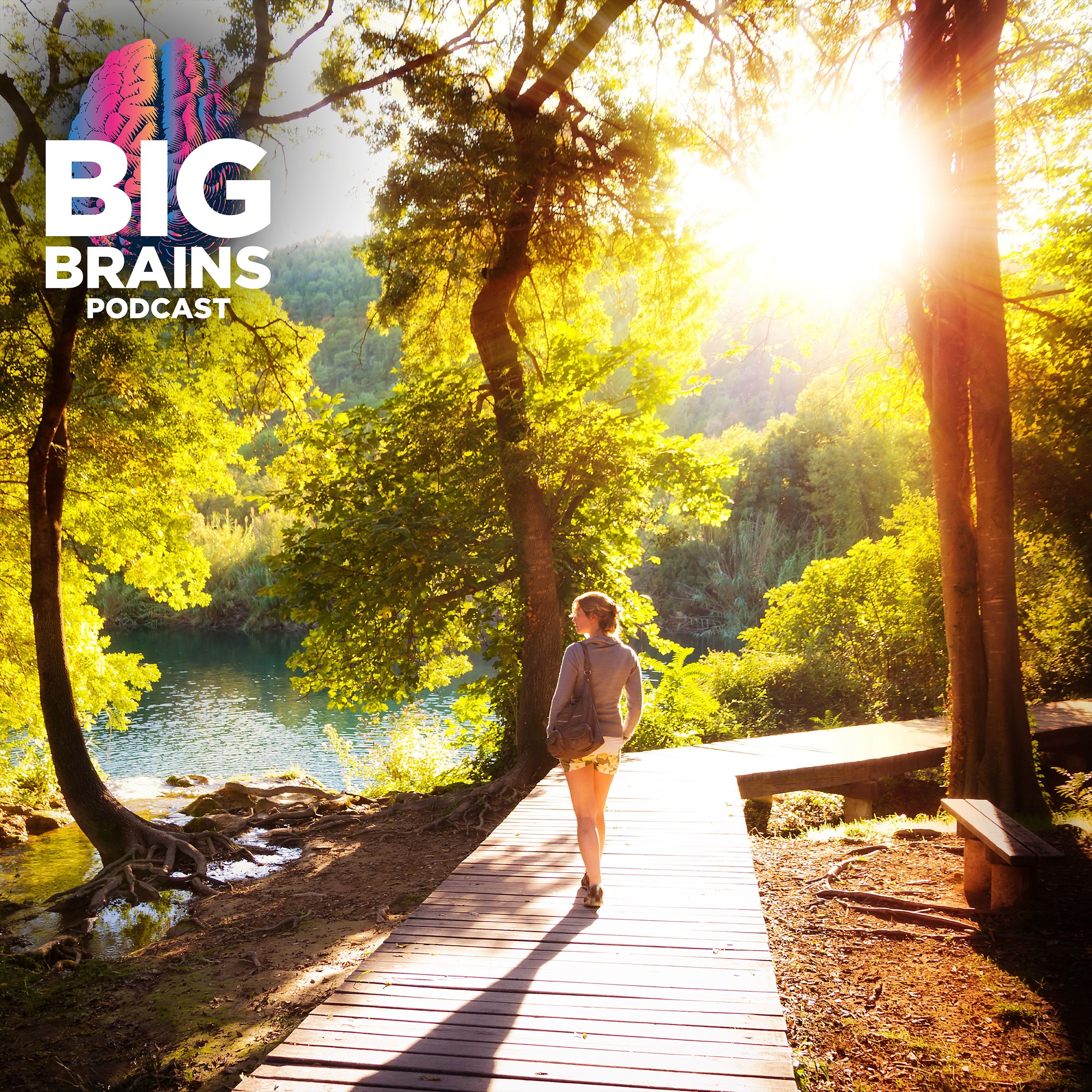
We’re living in an attention economy—and most of us are broke. But what if the secret to restoring your focus, improving your mental health, and even reducing crime rates wasn’t found in an app or a pill, but in a tree?
In this episode, we speak with University of Chicago psychologist Marc Berman, whose research on “soft fascination” and nature’s cognitive effects is reshaping how we think about everything from urban planning to depression treatment. From groundbreaking hospital studies to surprising results with plastic plants, Berman’s work uncovers the deep—and often invisible—power...
Could Plants Unlock Quantum Medicine’s Potential? with Greg Engel
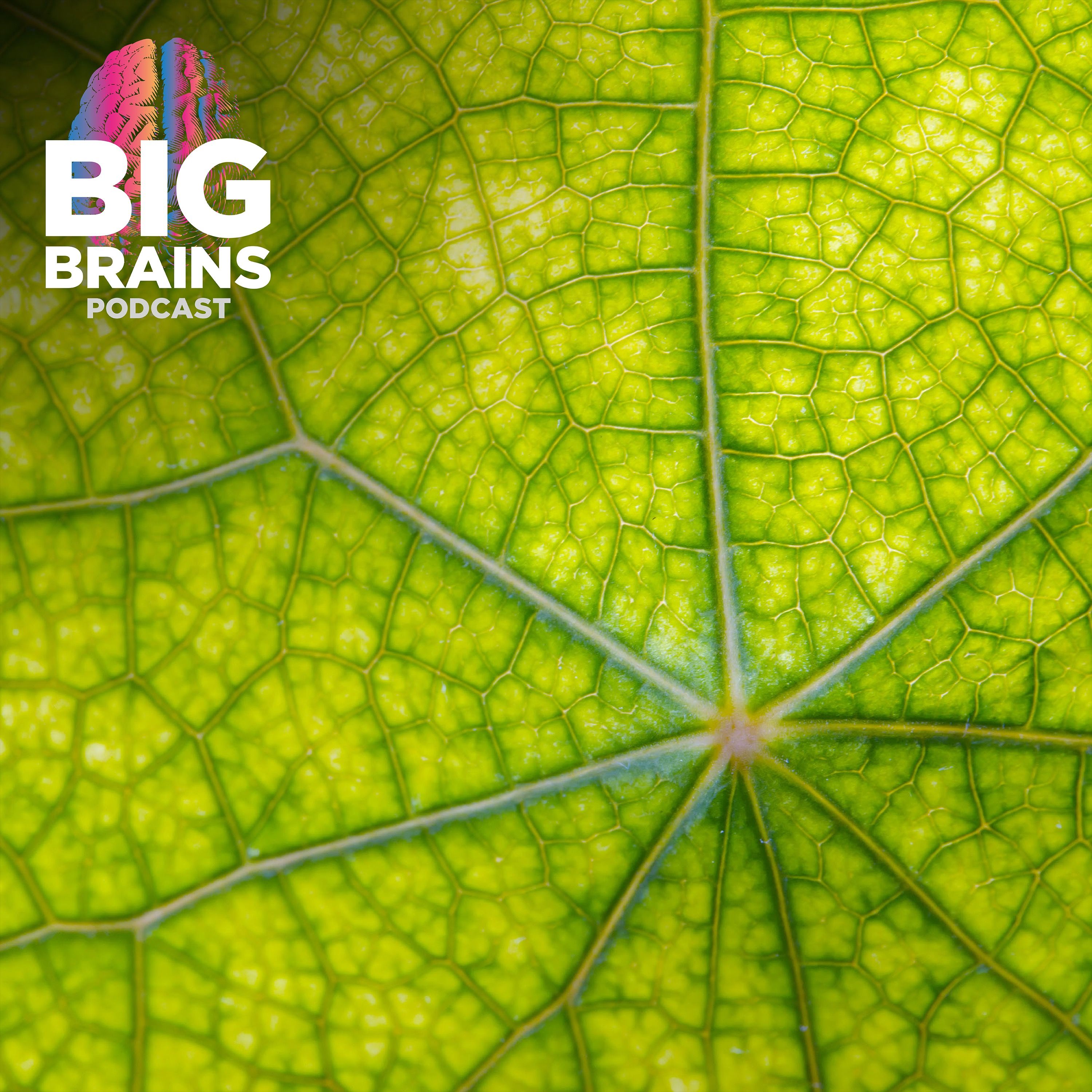
We’ve long marveled at how efficiently plants convert sunlight into energy—but no one guessed they were using quantum mechanics to do it.
In this episode, we speak with Greg Engel, a pioneering biophysicist at the UChicago Pritzker School of Molecular Engineering and the Department of Chemistry who helped launch the field of quantum biology. Engel explains how plants and bacteria evolved to exploit quantum effects for photosynthesis—and how understanding these systems could spark a revolution in quantum sensing, medicine, and neuroscience.
Engel’s team has already built quantum sensors inspired by nature’s designs...
How Microplastics Are Invading Our Bodies, with Matthew Campen
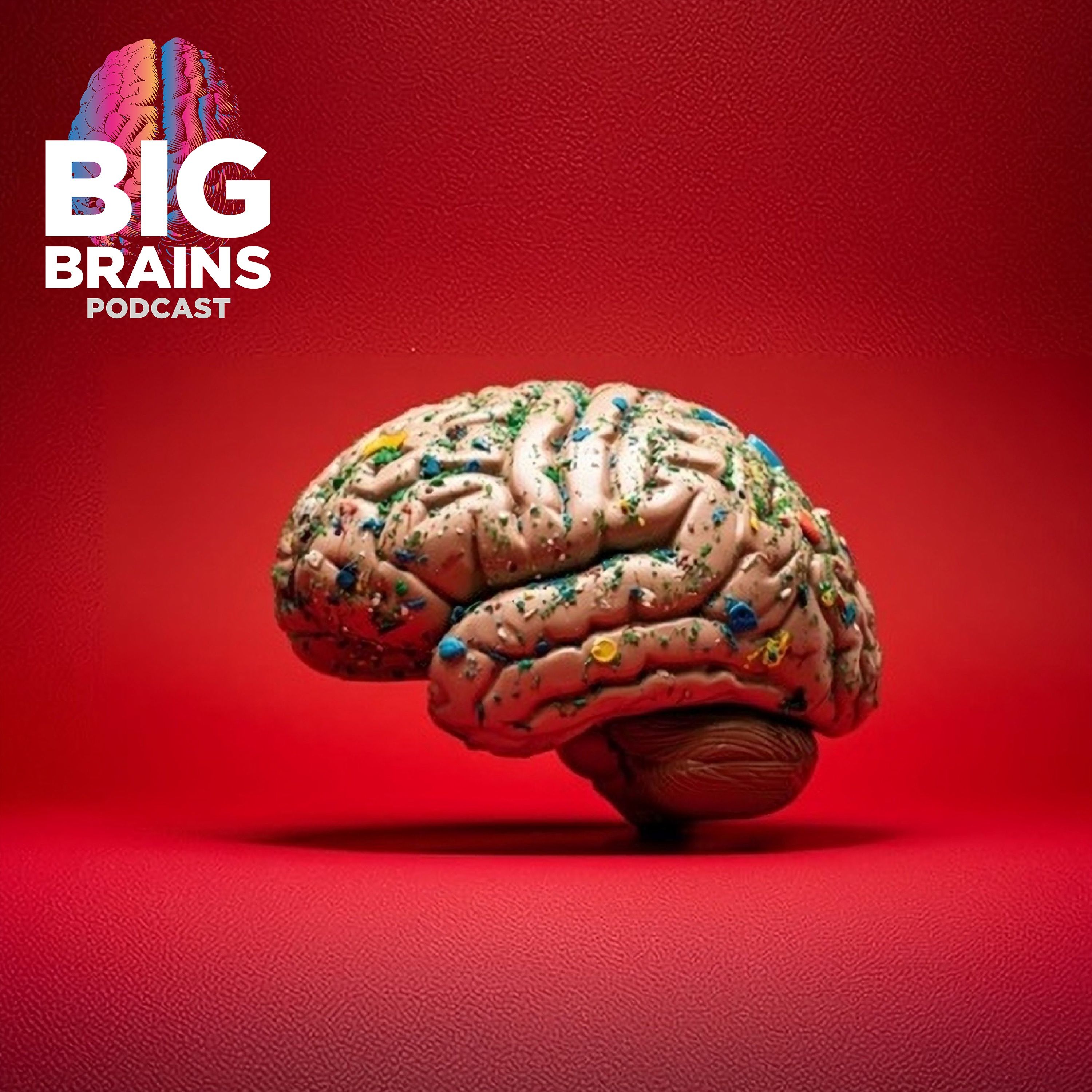
You’ve heard of plastic polluting oceans. But what if it’s polluting you—your brain, your reproductive system, even your unborn children?
In this eye-opening episode, we speak with Prof. Matthew Campen, a scientist at the University of New Mexico, whose latest studies have uncovered evidence of microplastics in placentas, reproductive organs and brains of humans—particularly in the frontal cortex, where decision-making and personality live.
We explore how these plastic particles are entering our bodies (hint: it’s not just your water bottle), what they might be doing to us, and why scientists are just b...
Why We Get Stuck—And How to Finally Move Forward
Hello listeners…we're re-releasing one of our favorite Big Brains episodes—an incredibly insightful conversation with psychologist Adam Alter. If you've ever felt stuck in your life or career, this episode offers practical strategies and surprising science to help you move forward.
From why your best ideas might come after you feel like giving up, to what Netflix can teach us about breaking through inertia, this episode is packed with revelations.
We’ll be back with brand-new episodes starting in August—also, check out our new YouTube page where you can now watch video versions of Big B...
Inside the AI Debate: Hope, Hype, Or Harm? A Big Brains Panel Weighs In
One of the benefits of producing this podcast at the University of Chicago is that there are often events on campus that bring in not just one Big Brain, but many in order to find answers to the some of the most complex problems of our time. I recently had the pleasure of hosting one such event on artificial intelligence that we want to share with you today. It was part of the Graham School’s Leadership & Society Initiative Symposium, examined how AI could change everything and, more importantly, whether it should.
Artificial intelligence is evolving faster th...
Are Your Medications Safe And Effective?, with Jerry Avorn

For a more than a century, the Food and Drug Administration has worked to protect public health. In his research, Harvard University physician-researcher Jerry Avorn has examined how the FDA’s once-rigorous gold standard approval process has been affected by a powerful shortcut known as the Accelerated Approval Program—originally designed for desperate AIDS and cancer patients. He says that change in the 1990s has allowed more than half of all new drugs onto the market before drug companies have proven they actually help people.
In his new book Rethinking Medications: Truth, Power and the Drugs We Take...
Are We Making AI Too Human?, with James Evans

Prof. James Evans, a University of Chicago sociologist and data scientist, believes we’re training AI to think too much like humans—and it’s holding science back.
In this episode, Evans shares how our current models risk narrowing scientific exploration rather than expanding it, and explains why he’s pushing for AIs that think differently from us—what he calls “cognitive aliens.” Could these “alien minds” help us unlock hidden breakthroughs? And what would it take to build them?
Hosted by Simplecast, an AdsWizz company. See pcm.adswizz.com for information about our collection and use...
Inside The Disease That Changes Your Personality, with Bruce Miller

When someone we know or love starts to develop psychological issues, we don't often associate it with a form of dementia. However, this trait is one of the most common signs of frontotemporal dementia (FTD) — the most common neurodegenerative disease in people under the age of 65. In his new book, Mysteries of the Social Brain: Understanding Human Behavior Through Science, Dr. Bruce Miller highlights his experiences observing people with FTD and what they have taught him about what he calls the "social brain."
Dr. Bruce Miller has been observing people with FTD for decades in the Memory an...
Meet The ‘Planet Hunter’ Searching For Alien Life, with Jacob Bean

The search for life beyond Earth is no longer science fiction—it takes a lot of data, powerful telescopes and a bit of cosmic detective work. And at the center of this search is University of Chicago astrophysicist Jacob Bean. Bean was part of the team that made history by detecting carbon dioxide in the atmosphere of a distant planet using the James Webb Space Telescope—a major step forward in our ability to study exoplanets.
Bean uses cutting-edge tools and discoveries that are reshaping how we think about planet habitability, biosignatures and our place in the univ...
How To Stop Gun Violence Before It Starts, with Jens Ludwig

Despite decades of policy ideas, pouring millions of dollars into the problem, and a slow pace of gun control measures, the United States hasn’t made much progress on curbing the epidemic of gun violence in our country.
For the past 25 years, Prof. Jens Ludwig of the University of Chicago has examined the questions of: Why does gun violence happen, and is there anything we can do about it?
In his new book, Unforgiving Places: The Unexpected Origins of American Gun Violence, Ludwig—who is director of the University of Chicago Crime Lab—discusses why we've...
Can Your DNA Predict Your Future?, with Dalton Conley

What if a single number, derived from your DNA, could predict your income, education level or even who you're likely to marry? In his new book “The Social Genome,” Princeton University sociologist Dalton Conley explores the science behind how our genes are shaping our society in ways that are both profound and unsettling.
Conley explains how our genes, and the genes of those around us, are influencing our lives in ways we barely understand—from fertility clinics selecting embryos based on genetic traits to the rise of “genetic sorting” in everything from dating to zip codes. He also debun...
Can You Really Die of a Broken Heart? The Hidden Dangers of Grief, with Mary Frances O'Connor

When we lose someone, we love, we often say we have a broken heart—but what if that’s not just a metaphor?
In her new book “The Grieving Body: How The Stress of Loss Can Be An Opportunity For Healing” University of Arizona Professor of Psychology Mary Frances O’Connor shares groundbreaking insights into the biological and physiological impacts grief has on our bodies. O’Connor reveals how profound loss can lead to serious medical conditions, from heart attacks to immune system breakdowns, and explains why grieving can make us more vulnerable to diseases like cancer, pneumonia, a...
The Science Behind Raising Successful Kids, with Ariel Kalil

New federal data paints a stark picture: American children are falling behind in reading and test scores, with the gap between advantaged and disadvantaged kids growing wider. But is this really just a problem of money? University of Chicago Developmental psychologist Ariel Kalil has spent her career studying how parents influence childhood development—not just through resources, but through daily habits and interactions.
On this episode, we explore the surprising science behind parental engagement, the behavioral biases that shape parenting decisions, and why simple interventions—like 15 minutes of reading a day—can have an outsized impact. Plus, we dis...
Do Animals Understand Death?, with Susana Monsó

What does it mean to understand death? For centuries, philosophers have argued that only humans can truly comprehend mortality. But what if they’re wrong?
In this episode, we speak with philosopher Susana Monsó, author of Playing Possum: How Animals Understand Death, to explore whether animals can grasp their own mortality. From grieving elephants to corpse-removing ants and possums that play dead, we investigate what animal behavior reveals about their concept of death. Do dogs understand when their owners pass away? Do predators recognize a corpse as different from prey? And what does this mean for how we...
Why Measles Is Resurging—And The Rise Of Vaccine Hesitancy, with Adam Ratner

In 2000, the United States declared that measles had been eliminated. But just 15 years later, the disease made a comeback—and it hasn’t gone away since. In this episode, Dr. Adam Ratner, director of the Division of Pediatric Infectious Diseases at NYU and author of Booster Shots: The Urgent Lessons of Measles and the Uncertain Future of Children's Health, explains why measles outbreaks are occurring again—as vaccine hesitancy and the antivax movement is on the rise—and what this means for the future of children’s health.
Ratner describes why measles is the most contagious disease we know of...
The Little-Known Secrets To A Good Life, with Shigehiro Oishi

What makes a good life? For decades, psychologists have debated whether true fulfillment comes from happiness—a life of comfort and joy—or meaning—a life of purpose and impact. But what if there's a third way?
University of Chicago psychology professor Shigehiro Oishi has spent his career studying happiness, meaning, and what truly brings people deep satisfaction. His new research suggests that some of the most fulfilled people don’t prioritize either—they live psychologically rich lives, full of novelty, challenges, and transformative experiences.
In this episode, Oishi explains why psychological richness might be the missin...
How Bioelectronics Could Heal Our Bodies And Minds, with Bozhi Tian

Imagine a future in which Band-Aids talk to your cells, pacemakers are powered by light and your gut microbiome gets a tune-up—all thanks to tiny bioelectric devices. Sounds like sci-fi, right? Think again.
Prof. Bozhi Tian of the University of Chicago is on the frontier of bioelectronics, building living machines that can heal, enhance and maybe even transform what it means to be human. In this episode, he explains his research lab’s work and explores the thrilling, strange and sometimes unsettling world in which biology meets technology.
Hosted by Simplecast, an AdsWizz comp...
Could A Fungal Pandemic Be “The Last of Us?", with Arturo Casadevall

Five years after COVID became a global pandemic, could another health crisis be on our horizon? According to scientists who study diseases, the possibility of a fungal pandemic—the subject of science fiction TV shows like “The Last of Us,” could be more of a reality, thanks to climate change and our warming planet. As fungi are adapting to warmer climates, they are becoming increasingly stronger and more resistant against the drugs we have to fight them.
Arturo Casadevall is one of the scientists who is warning against fungi's powerful potential. He's a professor of microbiology and immuno...
The "Magic Words" That Turn Resolutions Into Reality
As we step into 2025, many of us are thinking about how to turn our New Year's resolutions into lasting changes. But what if the secret to success lies not in willpower but in the words we use every day? To kick off the year, we’re sharing our past episode with Jonah Berger, a professor at The Wharton School and author of Magic Words: What to Say to Get Your Way.
In this episode, Berger uncovers the science behind the language we use and how it shapes our habits, decisions, and relationships. From simple word swaps that ca...
What’s The Truth About Alcohol’s Benefits And Risks? with Tim Stockwell

We have long heard the claims that a glass of red wine is good for your heart, but it turns out that the research that fueled this wisdom was actually skewed. Some studies made it appear like moderate drinkers were healthier than people who didn't drink at all, leading the public to believe that alcohol was healthier than it is. While drinking alcohol occasionally might not have catastrophic effects on your health, the data shows that even moderate drinking will reduce your life expectancy.
In this episode, we speak with Tim Stockwell, a scientist at the Canadian...
What Happens When We Die? with Sam Parnia

For centuries, death has been seen as a final, inescapable line—a moment when the heart stops and the brain ceases to function. But revolutionary research asks: What if everything we thought we knew about death was wrong?
Sam Parnia, an associate professor of medicine at NYU Langone, is the author of Lucid Dying: The New Science Revolutionizing How We Understand Life and Death. His groundbreaking work explores how science is pushing the boundaries of life and death, uncovering the potential to resuscitate animals—and maybe one day humans—after they've been declared dead. From recalling experiences of con...
The Illusion of Moral Decline
This year’s election might have been the most contentious in modern memory. It's not just that politics have changed, but it seems that people have too. You’ve probably heard this phrase: “People aren’t as kind as they used to be”. Maybe you’ve experienced the feeling that people are acting meaner to each other, year after year. But is it true? Are people really less kind than they used to be?
With that question in mind, and as we take some time off for the Thanksgiving holiday, we wanted to reshare our episode with psychologist...
Can We Predict The Unpredictable? with J. Doyne Farmer

What if we could predict the economy the way we predict the weather? What if governments could run simulations to forecast the effects of new policies—before they happen? And what if the key to all of this lies in the same chaotic systems that explain spinning roulette wheels and rolling dice?
J. Doyne Farmer is a University of Oxford professor, complexity scientist, and former physicist who once beat Las Vegas casinos using his scientific-based methods. In his recent book “Making Sense of Chaos: A Better Economics for a Better World” Farmer is using those same principles to bui...
Unlocking The Secrets Of ‘SuperAgers’, with Emily Rogalski

https://haarc.center.uchicago.edu/We used to think aging inevitably led to memory loss, but a small group of people—known as SuperAgers—are defying the odds. These individuals, all over 80, have the memory performance of someone in the 50s. The question is: how?
One of the leading experts studying SuperAgers is University of Chicago neurologist Emily Rogalski. She explores the fascinating science behind SuperAgers—uncovering what makes their physical brains different and how their lifestyle choices could be the key to a having a sharper, healthier brain well into old age.
Hosted by Sim...
2024 Nobel Laureate Explains What Makes Countries Fail Or Succeed, with James A. Robinson

On Big Brains, we get to speak to a lot of groundbreaking scholars and experts, but some conversations we walk away knowing we’ve just heard from someone who is really changing the world. We certainly felt that way years ago after talking to University of Chicago scholar James Robinson, and it turns out…the Nobel Prize committee agreed in 2024 when it awarded him a share of the Sveriges Riksbank Prize in Economic Sciences in Memory of Alfred Nobel.
Robinson was honored for the exact work that we talked to him about nearly five years ago. The auth...
Why Can’t Scientists Agree On The Age Of The Universe? with Wendy Freedman

How old is the universe—and how fast is it expanding? These are part of one of the biggest—and most contested—questions in science, and the answers could change our understanding of physics.
In this episode, we talk with renowned UChicago astronomer Wendy Freedman, who’s spent decades trying to solve these very questions. There are two ways to measure how fast the universe is expanding, also known as the Hubble constant; Freedman has done groundbreaking research to calculate this number using stars, but the problem is, her numbers don’t match up with scientists using a differen...
What Are We Getting Wrong About Young Voters?, with Cathy Cohen

One of the biggest questions of every election is: What’s going on with young voters? There is endless speculation on the news about what young people care about, but very little good research examining their views on the candidates and the issues that matter most to them. The first-of-its-kind GenForward Survey changed that when it was created in 2016 at the University of Chicago.
Led by renowned University of Chicago political scientist Cathy Cohen, the survey digs into what is animating young voters—especially young voters of color who are millennials and in Generation Z—and what they t...
Why Are More Women Saying No To Having Kids? With Peggy O'Donnell Heffington

More and more women in the United States are saying no to motherhood. Alarmingly, in 2023, the U.S. fertility rate reached the lowest number on record. But the idea of non-motherhood is actually not a new phenomenon, nor did it come out of the modern feminist movement. For centuries, women have made choices about limiting births and whether or not to become mothers at all. This history is documented in a new book, "Without Children: The Long History of Not Being a Mother," by University of Chicago Assistant Instructional Professor Peggy O'Donnell Heffington.
Heffington writes about the...
How Homeownership Shaped Race In America, with Adrienne Brown

Race has played a huge role in the creation of mass homeownership in the United States. Discriminatory housing practices including redlining, exclusionary zoning and whitewashing led to great disparities in home ownership among White and Black homeowners. Despite the passage of the Fair Housing Act in 1968, the damage had been done to communities of color and the rates of Black homeownership.
Mass homeownership actually changed the definition, perception and value of race, according to a new book called The Residential is Racial: A Perceptual History of Mass Homeownership. In it, University of Chicago scholar Adrienne Brown documents...
Fighting Back Against AI Piracy, with Ben Zhao and Heather Zheng

If you’ve spent any time playing with modern AI image generators, it can seem like an almost magical experience; but the truth is these programs are more like a magic trick than magic. Without the human-generated art of hundreds of thousands of people, these programs wouldn’t work. But those artists are not getting compensated, in fact many of them are being put out of business by the very programs their work helped create.
Now, two computer scientists from the University of Chicago, Ben Zhao and Heather Zheng, are fighting back. They’ve developed two programs, called...
The Bioelectric Future of Regenerative Medicine

In the near future, birth defects, traumatic injuries, limb loss and perhaps even cancer could be cured through bioelectricity—electrical signals that communicate to our cells how to rebuild themselves. This innovative idea has been tested on flatworms and frogs by biologist Michael Levin, whose research investigates how bioelectricity provides the blueprint for how our bodies are built—and how it could be the future of regenerative medicine.
Our podcast is taking a quick summer break, but we wanted to take this time to share some of our favorite episodes with you. One of the most fascinating topi...
Is Mindfulness The Secret To Health?

Can you heal faster just by tricking your brain? Could you lose weight with only a change of mindset? Could you think yourself into being younger? If you think the answer to all these questions is no, you haven’t read the research from renowned Harvard University psychologist Ellen Langer.
Our podcast is taking a quick summer break, but we wanted to take this time to share some of our favorite episodes with you. The summer is a perfect time to take a step back, evaluate where we are in our lives, and perhaps even create new he...
Feeling Stuck? Here’s How To Achieve a Breakthrough, with Adam Alter

We've all been stuck at some point in our lives — whether we've been stuck at a job and wanting to make a career change, stuck in a location and wanting to move somewhere new, or stuck in relationships or friendships. But the method to getting “unstuck” and achieving a breakthrough might be easier than you think.
Using research-backed tools, New York University's Adam Alter shares his tips for how to get unstuck in his new book, Anatomy of a Breakthrough. Alter shares success stories from some of the world's most successful people, and explains how altering your though...
